#and it *is* purely political
Text
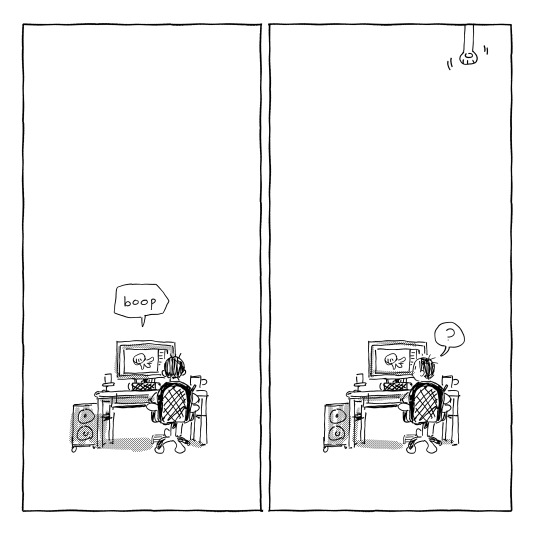
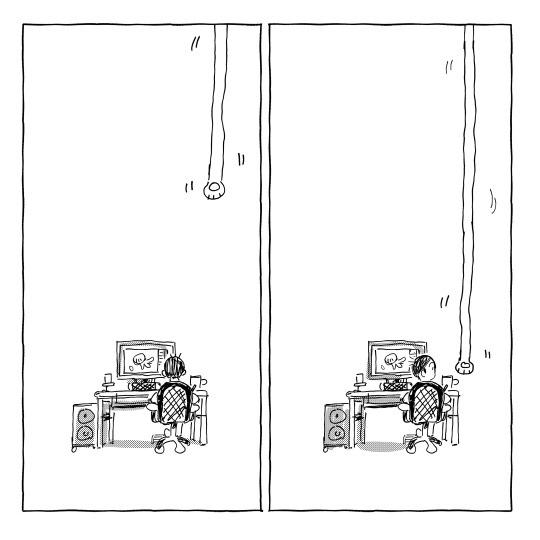
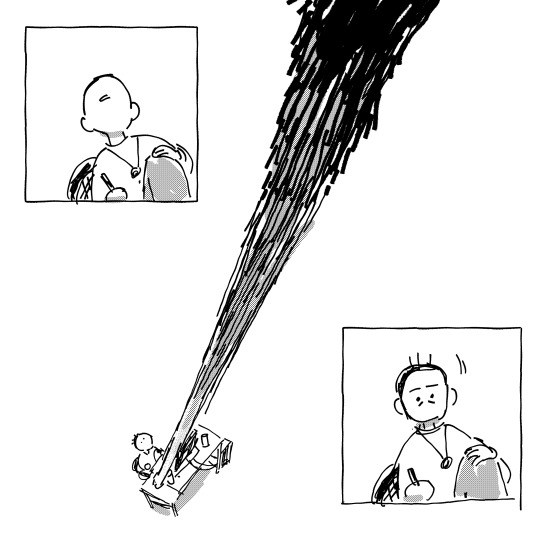
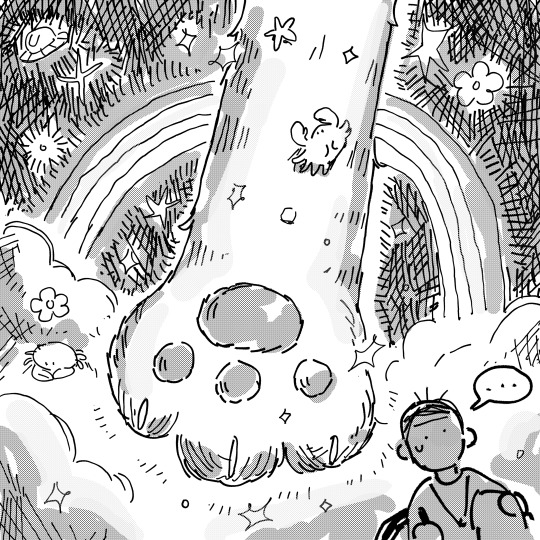
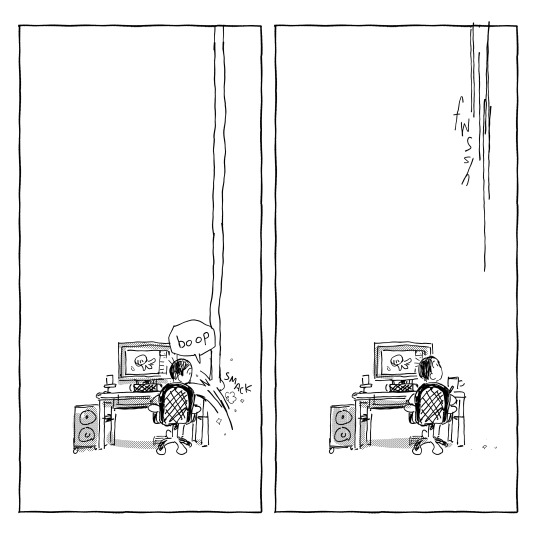

didn't get to boopin everyone but it was fun haha
#mhfghfg#artists on tumblr#purely personals#comics#sequential#super boop means a giant cat paw politely waits for you to smack it#and evil boop means a giant cat paw just smooshes you
10K notes
·
View notes
Text
i find it so funny when people go "antizionism isn't antisemitism" and then just casually throw in the most nazi statement you've ever heard in your entire life, like damn, it's pretty clear you fucking hate jews, just own it already and stop hiding behind politics.
#jumblr#antisemitism#antizionism is antisemitism#wishing death upon jews just because you don't agree with israeli politics is just pure antisemitism#i'm so tired
534 notes
·
View notes
Text
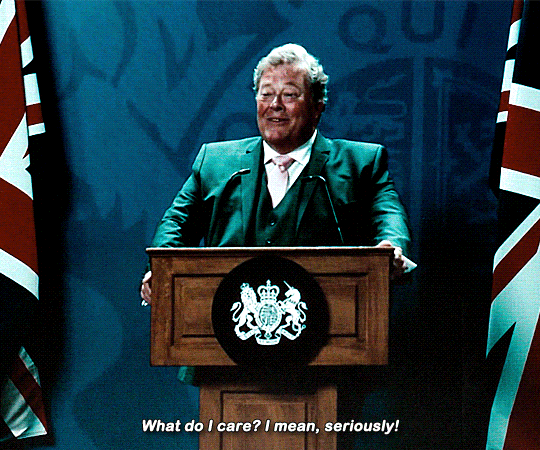

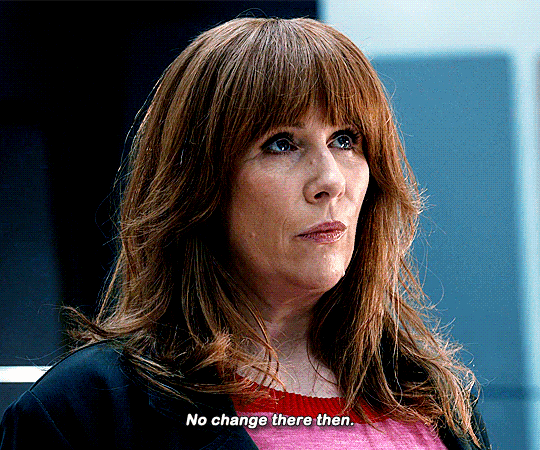
#art reflects reality
#doctor who#doctorwhoedit#dwedit#donna noble#donnanobleedit#catherine tate#uk politics#dw spoilers#*gifs#1k#i just needed to gif this for the pure genius#because i'm 100% sure this was modelled off b*ris j*hnson
3K notes
·
View notes
Text
Character concept: kindly old mentor figure who is scouring the land in search of The Chosen One to pull the sword from the stone. They find the kid destined to be king, whisk them away on a magical adventure full of lessons like "be a good sport" and "always see the best in people," and guide them to the stone.
The child pulls the sword out and immediately gets knifed in the ribs by their mentor, who takes the sword, hides the body, and gets declared the rightful king.
#fantasy#d&d#the sword in the stone#he's been learning swordsmanship and statescraft for decades#he's not gonna let some trumped-up 11-year-old who got blessed by a fairy at birth run a kingdom#doesn't matter how noble and pure of heart the kid is he's an illiterate peasant who's never left his village#what does he know about economics and continental politics?#kid didn't even know how to use a fork
1K notes
·
View notes
Text
Jay really took all the trauma I got from the other epic songs, mixed it together, gave it a good stir and called it wisdom saga
#What do you MEAN polites in the underworld flashback??#What do you MEAN his mothers song??#What do you MEAN ody's and eury's sad dialogue at the end of thunder bringer???#What do you MEAN luck runs out recalling???#What di yiu MEAN warrior of the nind sountrack???#This saga has the pure intens to make me cry#and i live for it#epic the musical#odysseus#epic polites#eurylochus epic the musical#jorge rivera herrans#epic the wisdom saga#athena
250 notes
·
View notes
Text
Heyyyy since there's talk of the Breezepelt Attacking Poppyfrost scene going around, I just wanna remind people that he explicitly does that because he was groomed by the Dark Forest. Jayfeather points it out on the page that Breezepelt's stated motivation doesn't make sense, because it's not actually a rational idea Breezy-P came up with. It's then shown that actual factual evil demons are exploiting the anger he has from being a victim of child abuse, to indoctrinate and manipulate him into radical violence
I wrote a little essay about this with citations and stuff. It wasn't "for no reason," and anyone who tries to use the scene as "evidence" of Breezepelt being Secretly Evil to justify the abuse he underwent as a kid either didn't read it, has bad reading comprehension skills, or is cherrypicking on purpose.
Crowfeather emotionally and physically abused his child, Breezepelt was socially alienated by WindClan as a result, which leads to this moment. That is what is on the page.
#Breezepelt#This is one of the few character arcs in the series with proper setup and payoff like. Pls#The Attacking A Nun scene is part of it#The book says that the demons influenced him to do that#Political groups targeting disenfranchised and traumatized groups is Radicalization 101#Pls this is one of the few bits of really REALLY unironically good writing in the series I'm dying squirtle#Kill them by pointing out the scene is literally proof that Breeze DIDNT act on pure bloodthirst#Or ambition or whatever#OTL#Warrior cats analysis#Breezy-P get behind me
279 notes
·
View notes
Text
Trump may be more aesthetically repugnant by saying the unspoken out loud but functionally I struggle to see a significant difference in their politics. Genocide Joe is supporting genocide and colonialism abroad and at home has reneged on basically every campaign promise + Roe inflation rent etc.
Biden:
nothing for LGBT protection
endorsed additional police funding
nothing to stop racist censorship/book bans
nothing to protect abortion
no student loan forgiveness
nothing for grocery or rent inflation
more immigrants detained and abused than under Trump
literally sending Israel more weapons and money for genocide, calls himself a Zionist
but oh no Trump :(
#like it's pure intellectual laziness at this point to think you can shortcut the ethics of voting D or R in this country#Trump and Biden are both fascists and if Dems gave a shit they could run someone else but they aren't so what does that tell you?#us politics#usa#chatter
616 notes
·
View notes
Text
Speaking of the social context of P&P and Austen in general, and also just literature of that era, I'm always interested in how things like precisely formulated hierarchies of precedence and tables of ranked social classes interact with the more complex and nuanced details of class-based status and consequence on a pragmatic day-to-day level. I remembered reading a social historian discussing the pragmatics of class wrt eighteenth-century English life many years ago and finally tracked down the source:
"In spite of the number of people who got their living from manufacture or trade, fundamentally it was a society in which the ownership of land alone conveyed social prestige and full political rights. ... The apex of this society was the nobility. In the eyes of the Law only members of the House of Lords, the peerage in the strictest use of the word, were a class apart, enjoying special privileges and composing one of the estates of the realm. Their families were commoners: even the eldest sons of peers could sit in the House of Commons. It was therefore in the social rather than in the legal sense of the word that English society was a class society. Before the law all English people except the peers were in theory equal. Legal concept and social practice were, however, very different. When men spoke of the nobility, they meant the sons and daughters, the brothers and sisters, the uncles and aunts and cousins of the peers. They were an extremely influential and wealthy group.
"The peers and their near relations almost monopolized high political office. From these great families came the wealthiest Church dignitaries, the higher ranks in the army and navy. Many of them found a career in law; some even did not disdain the money to be made in trade. What gave this class its particular importance in the political life of the day was the way in which it was organized on a basis of family and connection ... in eighteenth-century politics men rarely acted as isolated individuals. A man came into Parliament supported by his friends and relations who expected, in return for this support, that he would further their interests to the extent of his parliamentary influence.
"Next in both political and social importance came the gentry. Again it is not easy to define exactly who were covered by this term. The Law knew nothing of gentle birth but Society recognized it. Like the nobility this group too was as a class closely connected with land. Indeed, the border line between the two classes is at times almost impossible to define ... Often these men are described as the squirearchy, this term being used to cover the major landowning families in every county who were not connected by birth with the aristocracy. Between them and the local nobility there was often considerable jealousy. The country gentleman considered himself well qualified to manage the affairs of his county without aristocratic interference.
"...The next great layer in society is perhaps best described the contemporary term 'the Middling Sort'. As with all eighteenth-century groups it is difficult to draw a clear line of demarcation between them and their social superiors and inferiors. No economic line is possible, for a man with no pretensions to gentility might well be more prosperous than many a small squire. There was even on the fringe between the two classes some overlapping of activities ... The ambitious upstart who bought an estate and spent his income as a gentleman, might be either cold-shouldered by his better-born neighbours or treated by them with a certain contemptuous politeness. If however his daughters were presentable and well dowered, and if his sons received the education considered suitable for gentlemen, the next generation would see the obliteration of whatever distinction still remained. The solid mass of the middling sort had however no such aspirations, or considered them beyond their reach.
"...This term [the poor] was widely used to designate the great mass of the manual workers. Within their ranks differences of income and of outlook were as varied as those that characterized the middle class. Once again the line of demarcation is hard to draw..."
—Dorothy Marshall, Eighteenth Century England (29-34)
(There's plenty more interesting information in the full chapter, especially regarding "the poor," and the chapter itself is contracted from a lengthier version published earlier.)
#anghraine babbles#long post#dorothy marshall#eighteenth century england#austen blogging#eighteenth century blogging#also thinking about this in terms of elizabeth spending so much of pride and prejudice /acutely/ conscious of a social divide#between her family (as in the bennets and mr collins) and darcy's status - so her claim to equality with him w/ lady catherine is- well#not a dry sociological statement but an important character moment for elizabeth (and lady catherine!)#realistically darcy's lifestyle politics and interests ARE far more allied with ppl like the fitzwilliams than ppl like the bennets#and elizabeth is not at all ignorant of that - it's why she initially thinks he's too much of a great man to be interested in her#even before she knows of his close connections to literal nobility#and that is probably the more ... normative? understanding of their respective positions.#so her later claim to equality with him - in a way that forces ly c to acknowledge elizabeth's own status - is not a simple neutral truth#but weighted in a way that's important thematically and for elizabeth's development - something that the pure sociological take misses imo#anghraine's meta#austen fanwank#sorta
152 notes
·
View notes
Text
Okay I'm riled up about this rn so time for a history of economics lesson (rant) from me, a stranger on the internet
I'm a communist, I hate capitlism, so lemme just put that out there. But capitlism had its moments. Even marx had some praise for parts of capitlism.
And by far the most successful form of capitlism was Keynesian economics, as evident by the enormous increase in living standards in those countries which adopted it between the 1930s and 1970s.
What's Keynesian economics? The idea that capitlism can't survive on its own, and must be supported by government spending at the poorest ends of society and taxes at the richest ends of society (essentially the opposite of trickle down economics) as well as strong regulations on certain industries like banking.
It basically started in 1936 with President Roosevelt who was a personal friend of John Keynes (who the theory is named after).
Roosevelt implemented Keynesian economics to great effect; he raised the top tax rate to 94% (he actually wanted a 100% tax rate on the highest incomes, essentially creating a maximum wage, but the senate negotiated down to 94%) and similarly high corporate tax rates, he created the first ever minimum wage, created the first ever unemployment benefit, created social security in America, pension funds, and increased public spending on things like public utilities and infrastructure, national parks, etc. Which created about 15 million public sector jobs.
This ended the great depression and eventually lead to America winning world War 2, after which many countries followed suit in implementing similar policies, including UK, Australia, and NZ (apologies for the anglosphere-centric list here but they're the countries I'm personally most familiar with so bare with me)
Over the next 40 years these countries had unprecedented growth in living standards and incomes, and either decreasing or stable wealth inequality, and housing prices increasing in line with inflation. Virtually every household bought a car and a TV, rates of higher education increased dramatically, america put a man on the moon, and so on.
Then it all abruptly ended in the 80s and the answer is plain and obvious. 1979 thatcher became UK prime minister. 1981 reagan became US president. 1983 the wage accords were signed in aus. 1984 was the start of rogernomics in NZ (Someone link that Twitter thread of the guy who posts graphs of economic trends and points out where reagan became president)
(Also worth noting those last two in NZ and Aus were both implemented by 'left' leaning governments, but they are both heavily associated with right wing policies.)
This marked the beginning of trickle down economics: tax cuts, privatization of publicly owned assets, reduction in public spending, and deregulation of the finance sector. The top tax rates are down to the low 30s in most of these countries, down from the 80s/90s it was prior. Now THATS a tax cut.
And what happened next?
Wages stagnated. Housing prices skyrocketed. Bankers got away with gambling on the economy. Public infrastruce and utilies degraded. And wealth inequality now exceeds France in 1791.
I don't know how anyone can deny the evidence if they see it, but there's so much propaganda and false information that a lot of people just don't see the evidence.
Literally all the evidence supports going back to Keynesian economics but now that the rich have accumulated so much wealth it's virtually impossible to democratically dethrone them when they have most of the politicians on both the right and the left in their pocket.
Unfortunately it was the great depression and ww2 that gave politicians the political power to implement these policies the first time around. Some thought the 2008 crash would spur movement back towards Keynesianism (which it actually did in Iceland, congrats to them), I hoped covid would force governments to now, but nope.
All these recent crises' seem to have just pushed politics further and further right, with more austerity and tax cuts.
I don't really have a message or statement to end on other than shits fucked yo.
#also this is purely talking about the economics side of things#i know pre-80s the social side of politics was fucked despite the increasing living standards#with jim crow laws ans segregation and countless anti-queer laws etc.#and i know you canr seperate the economy entirely from social aspects of politics#but for the purposes of this post this is about the theoretical implications of different forms of capitlism#thats also why im not mentioning the recent descent towards fascism even tho it is closely tied to the economy#anyway#so yeah ive been reading a lot on economics lately#capitlism#economy#Keynesian economics#communism
5K notes
·
View notes
Text
you don't understand, he is undressing and fucking her with his gaze bc he wants to see and reach the light that's deep inside her very being!

#his intentions are pure and political guys!!!#sauron x galadriel#the rings of power#haladriel#saurondriel#galadriel x halbrand#trop#rop#galadriel#sauron
86 notes
·
View notes
Text

Name twinsies!
(Based on the community consensus about LWJ's grey horse's name)
#poorly drawn mdzs#mdzs#equineswap au#xiao pingguo#little apple#lan wangji#lan wunian#Took some inspiration from Pio's incredible art of horse wangji because i am merely a student in the art of horse#anyhow when I asked yall about lwj’s horse I did not think it would result in a overwhelming consensus that he’d just use ‘Wangji’#its funny as hell in canon but as an equineswap? Pure Gold#I also really need to emphasis that the ponies *do talk* in this AU. They are a co-existing civilized species#LWJ (horse) is just a quiet guy. And Little Apple hasn't been around a lot of horses#so she thinks her talking donkey roommate who suddenly switched personalities is an exception not the norm#little apple is constantly violating politeness norms by only addressing the pony’s accompanying human and not them#LWJ has achieved that alicorn immortality in this AU so yeah#this human girl was absolutely named after the horse. Possibly *by* horse lan wangji#sometimes a horse girl raises a horse and sometimes a horse raises a horsegirl#thank you once again to tumblr user clintbeefwoods for suggesting Lan Wunian as another name! It’s very well suited for her!#and i can tag the lan wangjis’ separately now <3
727 notes
·
View notes
Text

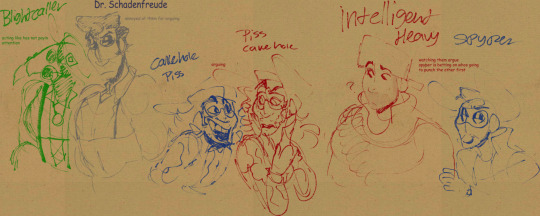
Um excuse me what the actual fuck are you doing in my house?
#team fortress 2#tf2#freak fortress#painis cupcake#ass pancake#medizard#polite spy#the blightcaller#dr.schadenfreude#cakehole piss#piss cakehole#intelligent heavy#spyper#WOW LOOK GUYS FOR ONCE I DIDNT DRAW BRUTAL SNIPER OR PURE SPY WOW LOOK ITS OTHER FF CHARACTERS
160 notes
·
View notes
Text
"I hate how they're writing Damian in Batman #146, he can't be that dumb, he's so ooc."
I mean, they're writing him almost as if he were a literal child who wants, no, needs to believe that his father's ideals aren't as fucked up as his mother's, who blindly believes in the man whom he learnt to trust despite being raised with widely different beliefs and ideals for the majority of his so-far short life.
Almost as if Damian were a pre-teen, or young teen at most (because how old can he be here, 13? 14?) who desperately clings onto the belief, onto the hope that his father hasn't really abandoned him, because his father is Batman, and Batman always has a plan, doesn't he? Obscure, complex, but a plan nonetheless, and it (almost) always turns out fine, so Damian needs to trust him, he knows he can, he knows that Batman is safe.
Logically, everyone else is older; I think the one whose age he's closest to might be Tim here, who's about 18 as usual, I guess. But Damian is a child, he's a child who's overall relatively new to Batman's antics, and he's a child who (unfortunately) rarely saw the difference between Batman and Bruce Wayne, a child who rarely got to meet Bruce Wayne at all, if you think of it.
You (you readers, not the characters in the story - because it makes sense for them to be so lost in the plot of their world that they lose sight of things) cannot blame a child for being delusional for believing with his whole heart that his father is not an evil bastard who's attacking everyone, allies included, family included. Because again, Damian doesn't really have a clear idea of how Batman and Bruce Wayne differ, he rarely got the priviledge to be with his father, Bruce Wayne, and not with his work partner, Batman.
You (readers) cannot really tell me that you're putting the blame on a child for 'snapping out of it' so late.
Of course, everyone is free to have their opinions, and if you think that this version of Damian is ooc or whatever, it's a valid, let's agree to disagree. But from a narrative pov, you can't possibly deny that it makes sense for Damian to be acting like this. He's a child, a literal child.
Expecting him to regulate his emotions as well as his sibs do is messed up. Which, by the way, they don't. Dick is a mess but keeping it together - except for the whole "punching your father senseless" thing, but good for him, I'd have done the same there. Jason is a mess and doesn't try to hide it, Steph is baffled and Babs is exhausted. The others are nowhere to be seen (and I'd have done the same pt2). Tim's the only one with a plan that's actually somewhat good - hope he makes Bruce snap out of his fear-induced little gateaway once and for all.
I know not many are fans of this run, but honestly? I'm digging it, it's possibly one of my faves. I love the drama, love the angst, love the plot-twists, like Damian snapping out of it just for Zur to silence him? Backup Robin who grins suspiciously like Jason? Tim ditching his phone - which is ossibly the most shocking thing? I'm hyped as hell.
All of this endless yapping to say that, okay, feel free to hate this or whatever, but please be humble enough to admit that Damian is being written exactly like he should be. I get it, DCAU gave us "Damian who talks like an old man, who never smiles and doesn't understand his peers" and it's cool. He's a bit like that in the comics too. But newer comics have a (very welcome, imho) tendency to write him as 'awkward' while simultaneously keeping in mind that he's a teen. And it's the best thing ever.
I, for one, needed reassurance at Damian's age. I needed an anchor and that anchor were my parents - growing up, the dynamics shifted but it's not the point. At 13, 14, or whatever Damian's age is, you're just a child who needs reassurance, because you're changing, the world around you is changing, and you're disoriented as if lost at sea. Writing Damian like that makes sense, it's not even up for debate.
He's not ooc, and he's not dumb either.
He's just a child.
Feel free to dislike how they're writing him, feel free to dislike literally every single detail about everything, this is a free world. But please don't tell me that needing a parental figure to be there for you, and that siding with said parental figure no matter what because they're essentially all you got left (rip batfam I guess?) - is ooc for a child. Damian is a child, don't forget that.
#deactivated rbs bc you guys can't behave.#my comeback post after a post-mania depressive episode being pure nerd yapping? yeah.#i still dont feel well enough to answer dms and on ao3 but i see you guys. give me some time. i promise to answer and thank everyone <3#also if this post upsets you dont bother with death threats. my bpd does not make me politically correct.#if you can elaborate then i'll listen gladly - love to hear different opinions. but if you're rude you're automatically blocked.#batman 146#batman 145#gotham war#zur en arrh#damian wayne#bruce wayne#batman#robin#batman 147
112 notes
·
View notes
Text

That aside, the 14th Amendment of the Constitution grants American citizens the right to travel between states! States simply can't stop citizens from moving between states, regardless of what their purpose is!

381 notes
·
View notes
Text
the “shipping galadriel with halbrand” to “shipping galadriel with sauron” pipeline:

#predictable? sure but him asking her to be his queen FLOORED me#purely political && not at all romantic but boy would they be a power couple#rings of power#lotr#halbrand#galadriel#sauron#lord of the rings#the lord of the rings: the rings of power#morfydd clark#charlie vickers#lotr: the rings of power#brittany broski
2K notes
·
View notes
Text



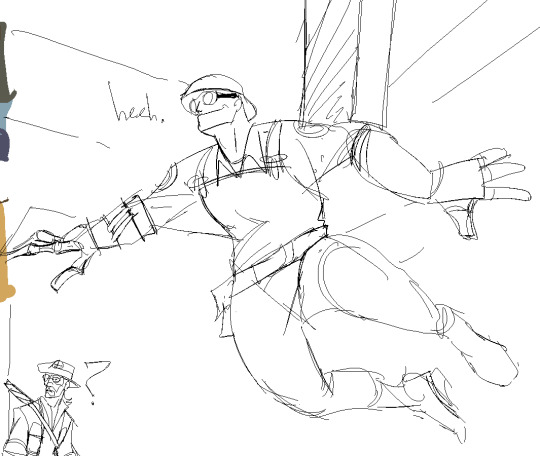
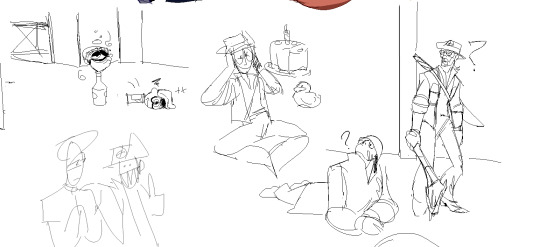
i missed these guys
#freak fortress#painis cupcake#piss cakehole#ass pancakes#christian brutal sniper#ninjineer#dic soupcan#weaselcake#christian pure spy#tf2#soldier#sniper#spy#sniperspy#engineer#polite spy#shriek#god damn#most of these are screenshot redraws from kugo videos
265 notes
·
View notes